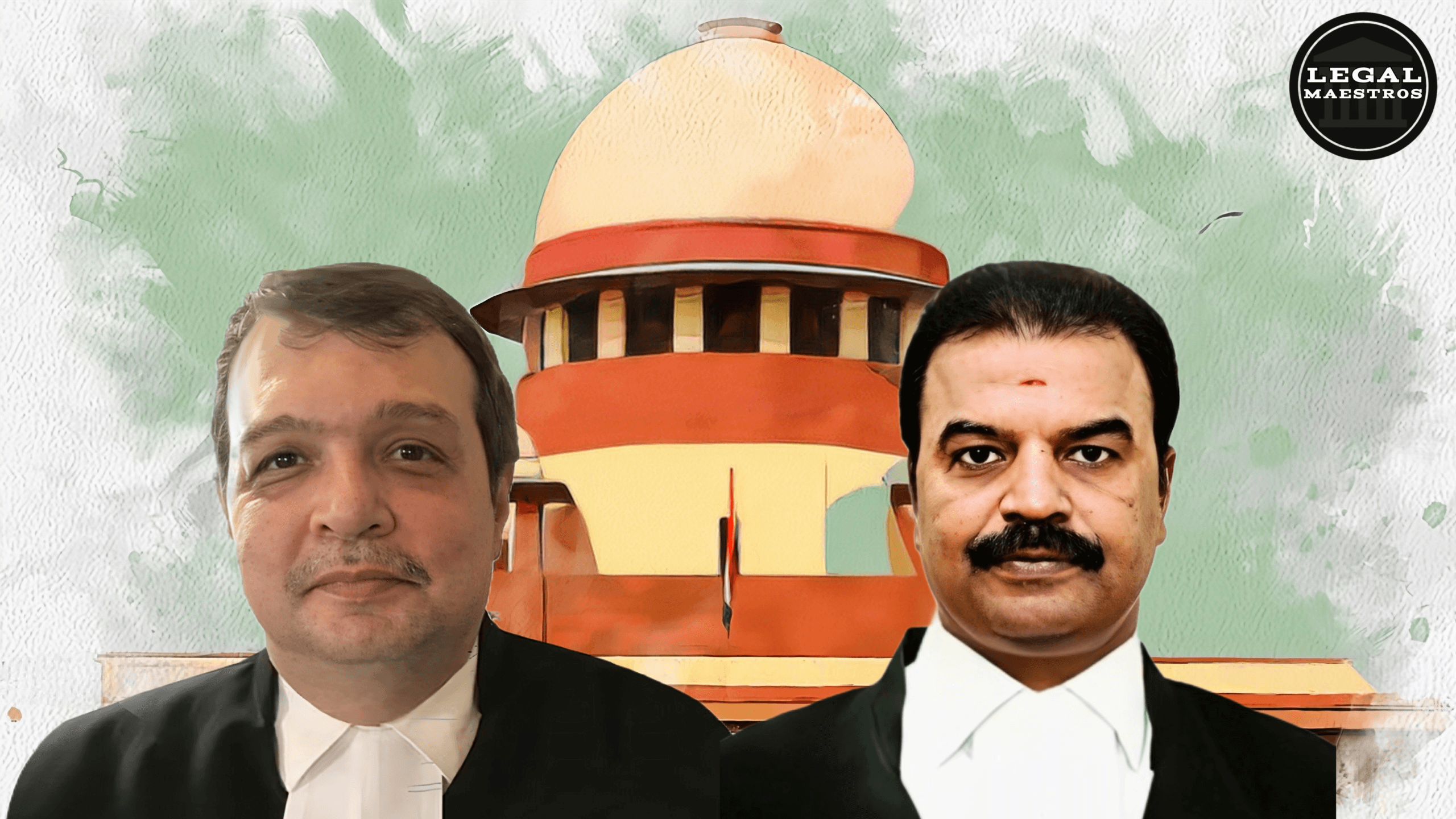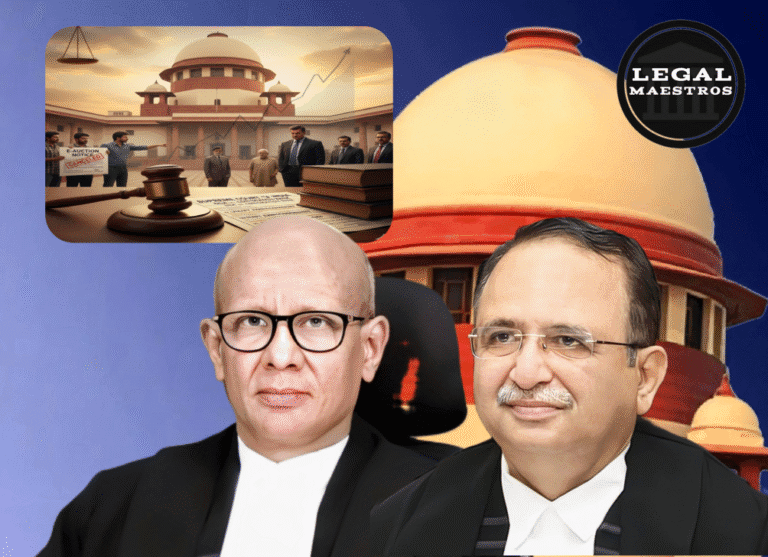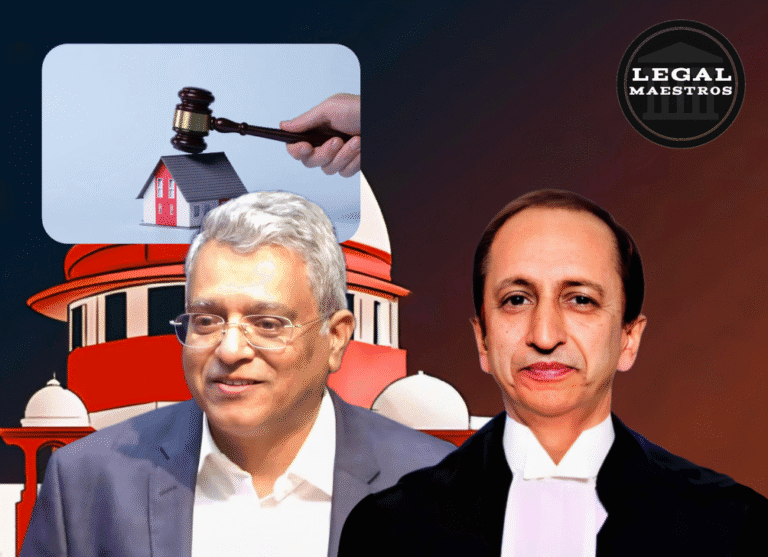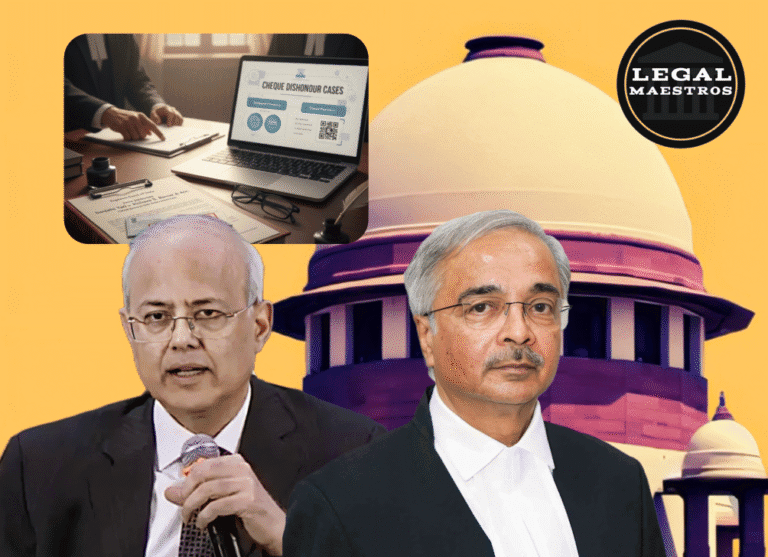
The issue was addressed in Hussain Ahmed Choudhury & Ors. V. Habibur Rahman & Ors. There was also a dispute in the interpretation of the rights of a donee under a registered gift deed and the rights of a buyer under a disputed sale deed which had been in doubt since 1977 when it had been resolved by a unanimous judgement of the Supreme Court in the Necchi V. Shibnath and Anr case. The decision supports fundamental concepts of property and declaratory law with reference to Section 31 and 34 of the Specific Relief Act, 1963. The Court also spoke about the false belief that legitimate declaratory litigation can’t go forward unless the person who filed it asks for the annulment of a transaction that is said to be invalid.
Facts and Background
The battle was precipitated by a gift deed that was executed by the grandfather of the first petitioner, Siraj Uddin Choudhury called Haji Abdul Aziz Choudhury in the year 1958. Seeing that the father had predeceased the plaintiff when his grandfather, Siraj Uddin was still alive at the time it was not possible that the property could have been passed on to him under Muslim personal law. To safeguard his rights therefore, a gift deed was formalised on his account.
In 1997, a few decades later, some of the donor’s other children’s legal successors sold part of the same property to a third person named Habibur Rahman. The plaintiff fought back by launching a title action, saying that he had sole title and possession of the property in question and wanted to stop dispossession. But while the case was going on, he was forcibly removed from his property. The plaintiff then changed his pleadings to additionally ask for the return of possession.
Cases in the Lower Courts
The trial court agreed with the plaintiff and said that the 1958 gift deed was lawful. It said that the donation had been accepted, the property had been given to the new owner, and even if the dog numbers were a little off, the border made it apparent what the land was. The court ruled in favor of the plaintiff to have the right, title and interest in the property and restoring him to having the property back.
First appeal court upheld the rulings of a trial court and held that the gift deed was valid, the delivery and acceptance were genuine and that the property was clearly identified.
The decision of the High Court
The High Court had a different opinion. The higher court agreed with the lower courts that the gift deed was real, but it threw out the lower courts’ decisions since the plaintiff had not contested the sale deed that was made in favor of Habibur Rahman. The High Court said that the plaintiff could not ask for a declaration of title or recovery of possession without first asking for the sale deed to be canceled. It used Sections 31 and 34 of the Specific Relief Act to back up its decision.
Legal Problems at the Supreme Court
The Supreme Court had to answer a very important question: Did the plaintiff, who was not a party to the sale deed made by the third party, have to petition for its cancellation before asking for a declaration of possession based on a lawful gift deed?
The Court looked at the following points:
The purpose and meaning of Section 31 of the Specific Relief Act (cancellation of instruments).
The meaning of Section 34 (declaratory relief) and its conditions.
What it means legally to not be a party to a document that might hurt your title.
If there is no cancellation prayer, may a previously formed title be invalidated?
The Supreme Court’s study.
The Court gave a clear and well-thought-out answer: someone who is not a party to a sale deed does not have to litigate to have it canceled. Instead, such individuals may ask for a declaration that the deed does not apply to them.
The court made it clear that Section 31 of the Specific Relief Act only applies to cancellation where the plaintiff is a party to or gets title from someone who is bound by the deed in question. When a third party signs a sale deed that the plaintiff doesn’t recognize or gets title from, on the other hand, the plaintiff may just ask for a declaration of title under Section 34 without having to cancel it.
The Court further said that the term “may” in Section 31 means that the person has a choice, not an obligation. It also said that a declaration of title is enough when the sale document doesn’t automatically bind the plaintiff. The High Court’s opinion that the claim must lose since it didn’t include such a cancellation remedy was found to be legally wrong.
Clarification of important ideas
The Court used a lot of past cases, such as Muppudathi Pillai v. Krishnaswami Pillai, Deccan Paper Mills Co. Ltd., and Suhrid Singh v. Randhir Singh, to make it clear that declaratory relief is enough where the plaintiff is not a party to an invalid instrument.
The ruling also made it clear that a declaration of title is typically the main way to get help when possession or an injunction comes straight from it. It would go against established legal norms to have the plaintiff insert needless petitions, such as cancellation, when the law doesn’t require them.
The reinstatement of Plaintiff’s rights
THE SUCCESS COURT UPLISHAED THE LOWER COURSE’S DECISION IN FAVOR OF THE
THE DONATION DEED FROM 1958 WAS REAL.
People who didn’t own the property signed the selling deed that came after it.
The plaintiff’s failure to ask for the sale deed to be canceled did not make his case invalid.
The reverse decision given by the High Court was founded on an erroneous interpretation of the law.
How important is it to get the details right and set limits?
The Court looked into the problem of misdescription in the donation deed about dog numbers and made it apparent that the property could be identified only by having accurate border descriptions. So little mistakes in the description don’t make a gift invalid, particularly because both the trial and appeal courts found the item to be easy to identify.
This case is a major reaffirmation of the rules that govern declaratory relief, the legality of gift deeds, and the unwarranted forcing of cancellation proceedings by those who don’t have to. It supports the premise that legal solutions should be based on fairness and common sense, not overly technical readings.
The Supreme Court makes a point of safeguarding real claims under legitimate instruments by throwing aside the High Court’s verdict and giving the plaintiffs back their lawful title and possession. This was done while balancing procedural strictness with substantive fairness. This decision would help courts all throughout India settle property issues, particularly where there are problems with transactions that were made after legitimate transfers.



